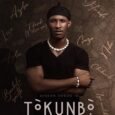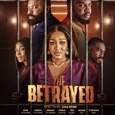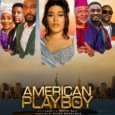Beverly Naya, Bucci Franklin, Uzor Arukwe, Adunni Ade, Daniel Etim-Effiong, Broda Shaggi, Shalewa Ashafa, Bimbo Ademoye
Sarah is a fashion designer with self-esteem issues brought on by a violent ex-boyfriend. Now trying to set up her business, by chance she meets Michael, a high-profile photographer who offers a chance to showcase her designs in a photo shoot with a modeling agency. Another chance meeting brings Sarah in touch with Fred, a gentlemanly character who asks her out on a date. The date is going well and Sarah is enjoying herself immensely, but the date ends horribly, putting another dent in Sarah's self-esteem. Sarah throws herself into work, trying to at least build her self-esteem with work that cannot be challenged. But the return of her violent ex-boyfriend causes a bigger damage to Sarah's fragile ecosystem, causing her to dig deeper to find the strength she possessed within her all along.
1hr 36mins
Lyndsey Efejuku
Uche Okocha & Tunwa Aderinokun
Egbemawei Dimiyei Sammy
2022
Netflix
Following right on the heels of the streaming release of To Freedom, “The One for Sarah” is another nollywood movie exploring the impacts of physical and psychological abuse on a woman in a relationship. Interestingly, mirroring its predecessor, the same actor, Daniel Etim-Effiong, takes on the role of the abuser in both films.
The One for Sarah is the story of a young fashion designer, Sarah (Beverly Naya) who tries to navigate the dating scene while cautiously watching out for men that remind her of a past that haunts her. Even prior to her revelation, the title of the movie and the tone makes it apparent that this past involves an abusive relationship. As she meets a variety of men along the way, she is hesitant to open up and engage until her friend (Bimbo Ademoye) nudges her into the arms of Fred (Uzor Arukwe).
There can never be an excess of stories depicting abusive relationships, just as there can never be an oversaturation of tales involving characters simply breathing air. Given its recurring presence in our society, it’s only equitable that it finds representation in our art. Nonetheless, as our industry evolves, the portrayal of these narratives should exhibit greater nuance and sophistication.
“The One for Sarah” endeavors to delicately approach this subject by interweaving a potent message within an aesthetically pleasing tapestry. Adorned with exquisite settings, captivating performers, and picturesque locations, the film employs a gentle musical score that aims not to overwhelm with its message, but rather to serve as a subtle reminder. Regrettably, the writing doesn’t possess the finesse required to achieve a harmonious blend of softness and impact. Consequently, the movie bears emotional gaps that are superficially filled with lines, accompanied by abrupt story transitions that appear rushed—an attempt to expedite the narrative that inadvertently sacrifices the intricacies, disrupting the overall flow.
The writing raises conspicuous questions: Why does a girl relentlessly pursued and haunted by her abuser opt to live alone, as opposed to residing with her close friend, whom she speaks in almost all of her free time? Additionally, uncertainties arise regarding the true nature of Sarah’s relationship with Daniel’s character. Only from the synopsis do we learn that he was her boyfriend; the extent of their relationship remains undisclosed. Beyond the confines of their connection, the story yearns for emotional engagement, necessitating a deeper backstory beyond the cursory label of “an abusive man.” Such context could have heightened our investment in the narrative.
“The One for Sarah” unfolds as a slow burn, a characteristic that isn’t bolstered by the presence of a somewhat less captivating lead actress. Beverly’s performance, spanning scenes and even movies, seems to remain trapped within the realm of reciting lines and mechanical motions, unable to transcend into the space where the viewers can authentically sense her character’s pain. Yet, this shortfall is notably compensated for by the supporting cast when they grace the screen. Bucci Franklin’s spirited portrayal endears his character to the audience on a grand scale, while Uzor Arukwe’s depiction of a romantic fits him like a second skin. Meanwhile, Bimbo Ademoye effortlessly illuminates every scene she enters.
“The One for Sarah” aspires to achieve a great deal. Regrettably, not all of these aspirations are realized in the manner that the creators undoubtedly intended. Despite these challenges, the movie remains enjoyable and successfully conveys its message by the time the credits roll.








